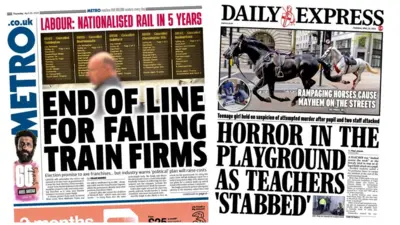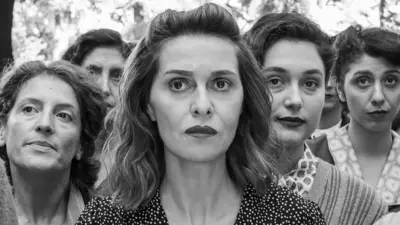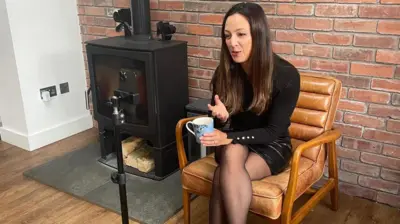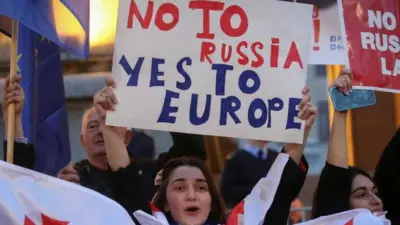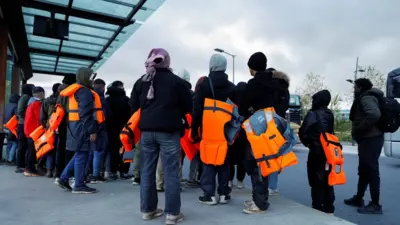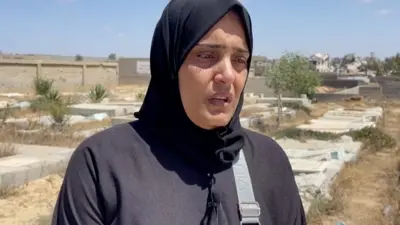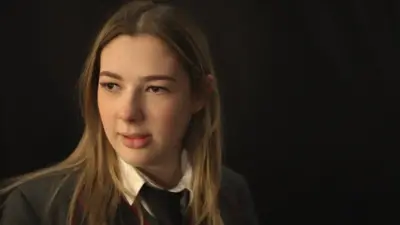We've updated our Privacy and Cookies Policy
We've made some important changes to our Privacy and Cookies Policy and we want you to know what this means for you and your data.
UEA protest song project welcomed by singer Billy Bragg
- By Nic Rigby and Shaun Peel
- BBC Politics East
A project to catalogue the rich history of the English protest song from 1600 to the present day has been welcomed by political songwriter Billy Bragg.
He said it was "great that the songs are recognised" in the University of East Anglia (UEA) project.
It includes Royalist songs from the English Civil War as well as modern songs such as Nelson Mandela and Glad To Be Gay.
He said songs "can't change the world" but can "bring people together".
A website catalogue of about 750 songs in the Our Subversive Voice project has been produced and the site includes interviews with songwriters.
Bragg, who has three of his songs in the catalogue, told BBC Politics East that the project was important to show the political tradition of songs in England.
"People think political pop music was something invented in the 1970s, but traditionally song has been used to get messages out, without them being edited by the government or establishment," he said.
"When I took part in the miners' strike in the 1980s, I was a little punk rocker guy... the folk singers were already there and their repertoire was more radical than mine and much of it had been written in the 19th Century."
Image source, Martin Giles/BBC
Asked about the impact of protest songs, Bragg said: "It can change some things, but it can't change the world.
"What it does is it brings people together in solidarity - for example to raise money for a cause.
"Music also has a great way of making you feel you're not the only person who feels this way."
Prof John Street, who is leading the Norwich-based university's project, said many political songs had appeared to make a difference.
"If you look at the ways a song like [The Special AKA's] Free Nelson Mandela brought attention to his imprisonment, that changed the way people thought about geo-political issues," he said.
"Tom Robinson's Glad To Be Gay got audiences to sing together... getting them thinking about that and sexuality at all is quite a significant impact."
He added: "I also know people who when they heard The Smiths' Meat is Murder started to think they shouldn't be eating meat."
Georgia Shackleton, of Norwich folk band the Shackleton Trio, believed political folk songs "make a difference by giving people a voice and a sense of community".
Shackleton, who has written environmental songs, said some lyrics had definitely been a "catalyst for change".
Singer songwriter Lizzy Hardingham, who lives near St Albans, Hertfordshire, writes political songs about environmental and mental health issues as well as covering songs by modern political songwriters such as Grace Petrie.
"Even if in a song you're not trying to get someone to do something, to act, it's a way of expressing your anger; a way of expressing frustration," she said.
"A lot environmental songs I have written have come out at a time when a news piece has really angered me or something somebody has said has been so poignant there has been no other way to get the feelings out than in a song."
Politics East airs on BBC One in the East on Sunday, 30 January at 10:00 GMT and can be viewed on the BBC iPlayer afterwards.
Find BBC News: East of England on Facebook, Instagram and Twitter. If you have a story suggestion email eastofenglandnews@bbc.co.uk
Top Stories
Features & Analysis
Most read
Content is not available
